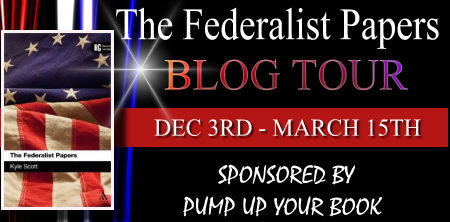ABOUT THE FEDERALIST PAPERS: A READER’S GUIDE
The Federalist Papers constitute a key document in the understanding of the American government. Written by John Jay, James Madison, and Alexander Hamilton, these 85 texts were published between 1787 and 1788 to convince the state of New York to ratify the Constitution.
Today, the Papers are studied in courses on American government, American political thought, and constitutional law. However, the size and organization of the full text, notwithstanding its complex political concepts and context, make it difficult for students to apprehend. The Reader’s Guide will be a key tool to help them understand the issues at hand and the significance of the Papers then and now. Organized around key issues, such as the branches of the government, the utility of the Union, or skepticism of a national regime, the work will walk the reader through the 85 Papers, providing them with the needed intellectual and historical contexts.
Designed to supplement the reading of The Federalist Papers, the guide will help elucidate not only their contents, but also their importance and contemporary relevance.
Guest Post by the author
We've been here before.
We've
been here before. And by here I mean a place of government gridlock in
petty bickering. In fact, we have been here many times and each time we
repeat the same mistake of thinking this time is unique. The
handwringing continues even today. What is remarkable is that US
politics was at its most divisive, with the exception of the Civil War
years, at yet we fail to look there for answers.
After
the men who drafted the Constitution departed Philadelphia and returned
to their home states the fight for ratification was on. The men met in
secret to draft a new constitution. They met in secret in order to
prevent unnecessary intervention and because they were embarking on an
act of treason. This collection of men, which included Benjamin
Franklin, George Washington, James Madison, Alexander Hamilton and many
others, were tasked with revising the Articles of Confederation not
creating new governing document that would get rid of the Continental
Congress and the Articles of Confederation in their entirety.
Given
the conditions surrounding its creation there should be no surprise
that there were objections to the new document. The general reaction to
the Constitution was that it created too powerful a government,
particularly at the national level. The people who opposed the
ratification were collectively known as the Antifederalists and those
who supported the ratification were the Federalists. The most prominent
Federalists were James Madison, John Jay, and Alexander Hamilton who
wrote under the pen name Publius. Publius wrote what are essentially
modern day op-eds about why the new constitution should be ratified. The
essays were published in newspapers so that the people of New York, to
whom they essays were addressed, could better understand their reasons
for seeking ratification. The Antifederalists embarked on similar PR
campaign, albeit one that was less successful obviously.
How
we deal with the political questions of today will help shape the
direction of the country but none has the potential to destroy the
country unless we follow a very slippery slope. What enabled the
founders to reconcile their seemingly irreconcilable differences was the
idea that they were better off getting something done rather than
nothing.
The
effect of doing nothing would have been to make the newly independent
nation open to international threats and susceptible to internal discord
to a degree that would have rendered the confederacy impossible to
maintain. But, we don't face such challenges today. Something like the
fiscal cliff would pose difficulties, but going over the cliff won't
lead to disunion. And that is the point. The Constitution creates a
system in which no action can be taken unless inaction is not an option.
Madison, and the rest of Publius, argued for a system that would induce
delay in order to protect the minority from the tyranny of the majority
or the government in general from putting into effect a poorly thought
out and weakly supported plan. The delay, while frustrating, is the one
component of the constitution that effectively balances the pull between
anarchy and tyranny.
When
you find yourself getting frustrated with the gridlock and stalemates
keep in mind this is who things are supposed to work. Also, we've been
here before, and we'll be here again. And we've always made it through.
ABOUT KYLE SCOTT
Kyle Scott, PhD, teaches American politics and constitutional law at Duke University. He has published three books and dozens of articles on issues ranging from political parties to Plato. His commentary on contemporary politics has appeared in Forbes, Reuters.com, Christian Science Monitor, Foxnews.com, and dozens of local outlets including the Philadelphia Inquirer and Baltimore Sun.
To find out more, please visit http://kyleascott.wordpress.com
Find him on Twitter at :
Find him on Facebook at : http://www.facebook.com/kyleasc
Follow the entire tour.




in the raffle it says there are almost 7 days until the ending of the contest.
ReplyDeleteThanks for noticing. They probably changed the rafflecopter. When I'm not in charge, I have no control. It does end the 15th.
ReplyDeleteWho is the winnner?
ReplyDeleteSince I am not in charge of the giveaway, I don't know. Not all blogs and companies post the names of the winners. I do know that they will contact the winner, and they are really good about that. So it is probably safe to say that if you have not been contacted, chances are you didn't win.
Delete